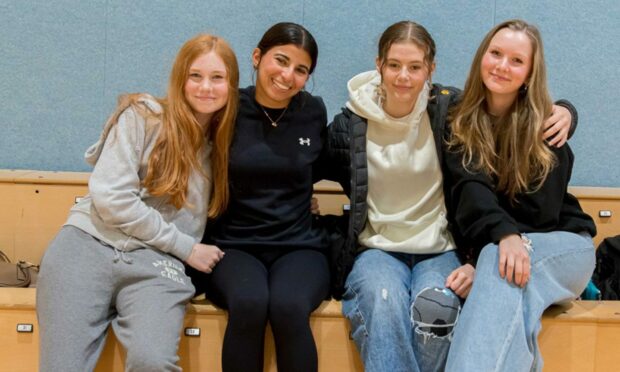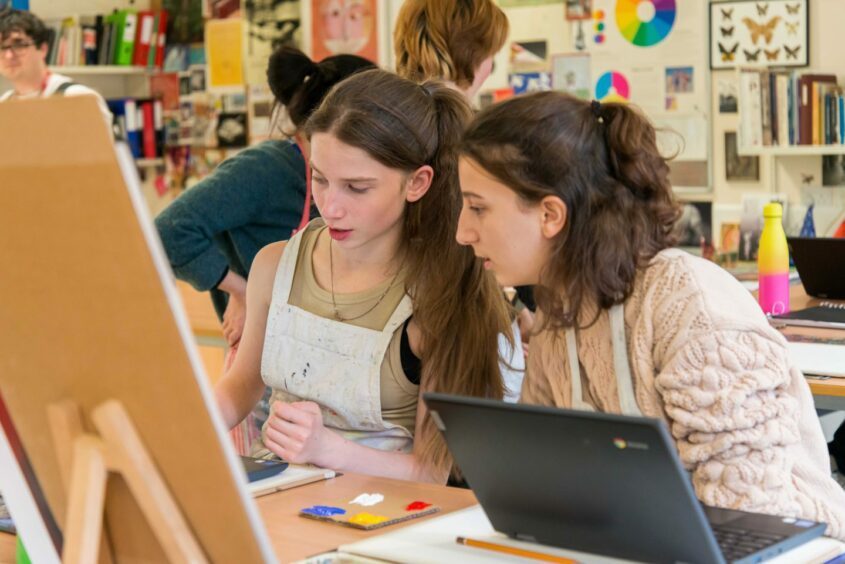ISA’s school counsellor has teamed up with an Aberdeen-based careers adviser to highlight all the different ways pupils can achieve their full potential.
It’s a new year and a whole new set of exams, as senior pupils across Scotland prepare for their Nat 5 prelims. Many will be starting to think about their options on leaving school.
It’s a daunting prospect, but International School Aberdeen (ISA) is reminding pupils there is no ‘golden ticket’.
Instead, there are lots of different paths to a rewarding career. The school has joined forces with a local careers adviser to help pupils take those first steps.
Start early and explore all the options
ISA’s approach mirrors the comments of education entrepreneur Spencer Mehlman, who founded the Not Going To Uni jobs site for school leavers. He said: “A degree is no longer a golden ticket to a career.”
ISA points to the vast array of options opening up to students today. These include sponsored degrees, self employment, in-house training and apprenticeships.
That one golden ticket has turned into many.
And with the backdrop of the pandemic, the cost-of-living crisis, and a host of other lifestyle factors, ISA believes it’s absolutely critical that young people have good advice, as early as possible.
At ISA – Scotland’s first international school – that advice is wide-ranging. The school offers all the usual support in terms of UCAS and international university applications.
But it also offers things like Morrisby psychometric testing for grade 10 pupils. Morrisby is a scientifically developed assessment of a student’s abilities, personality, interests, work and learning styles.
Alongside that is a range of one-to-one meetings with careers and guidance advisers and small workshops, which together offer pupils a uniquely broad insight into life after school.
ISA’s dedicated high school counsellor Heather Barker says: “Whilst many of our students remain keen on following a path to university after school, it’s important that we help them to make the best choices possible by working closely with them and their families.”
That work starts early on. ISA encourages students to research work and study options and think about what interests them. The school highlights the full range of options, from further and tertiary education to the emergency services and much more.
As pupils progress through school, those ideas tie in with their school work, performance and predicted grades.
‘No surprises’ culture at International School Aberdeen
Heather says International School Aberdeen has a ‘no surprises’ culture, which is very empowering for pupils of all abilities.
Heather explains: “If someone is not looking likely to hit the grades they need for a particular course we can look at ways of helping them academically or refocusing their aspirations. It will all happen over a long period of time with responsibility shared equally between school, home and student.
“Our place is to ensure that we support students throughout the journey and help them to position themselves for success socially, emotionally and mentally as well as academically.”
Heather adds that pupils experience a lot of anxiety around their academic performance. For that reason, ISA doesn’t just teach pupils how to pass exams. Instead, the school teaches skills including workload and time management, as well as ways to relieve stress such as volunteering, sport and relaxation.
All of this helps pupils to maintain a sense of perspective, and to pivot effectively when things don’t go to plan.
“One of the things we always emphasise is the importance of having a back-up plan so there is something there if the original plan doesn’t work out,” says Heather.
“That might be a change of course or education setting, or a gap year, for example.”
That approach even sees ISA alumni return to the school for advice if their university course doesn’t work out, or they decide they want a new direction.
No matter what path a student chooses, Heather says there is one constant principle. “Being realistic and finding the right fit to help our young people be the best they can be.”
More from the Schools and Family team
What does dyslexia really look like?
‘Actually it’s they’: Lost in gender politics? Here’s our essential guide for parents
How do I deal with family feuds at Christmas?



Conversation